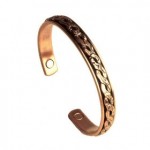 Folklore remedies for pain and inflammation support these bracelets to treat rheumatoid arthritis.
Folklore remedies for pain and inflammation support these bracelets to treat rheumatoid arthritis.
Researchers at The University of York, in the UK studied their effects. Continue reading Static magnets and copper fail to improve arthritis
 Folklore remedies for pain and inflammation support these bracelets to treat rheumatoid arthritis.
Folklore remedies for pain and inflammation support these bracelets to treat rheumatoid arthritis.
Researchers at The University of York, in the UK studied their effects. Continue reading Static magnets and copper fail to improve arthritis
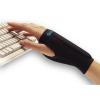 Aside from surgery, splinting, exercises, and other alternative therapies have been used.
Aside from surgery, splinting, exercises, and other alternative therapies have been used.
Researchers at Oregon Health & Science University reviewed the evidence. Continue reading Review: CAM options for carpel tunnel syndrome
 In this Cochrane review, researchers in Australia and the UK evaluated the evidence for directly altering brain activity with electrical stimulation to reduce chronic pain. Continue reading Noninvasive brain stimulation to treat chronic pain
In this Cochrane review, researchers in Australia and the UK evaluated the evidence for directly altering brain activity with electrical stimulation to reduce chronic pain. Continue reading Noninvasive brain stimulation to treat chronic pain
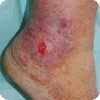 In this Cochrane review, researchers at the University of Malaya, in Kuala Lumpur, reviewed this common, chronic, recurring condition, which has a prevalence in the UK of 1.5 to 3 per 1000 and is estimated to cost the NHS £400m ($720m; €600m) a year. Continue reading Electromagnetic therapy for venous leg ulcers
In this Cochrane review, researchers at the University of Malaya, in Kuala Lumpur, reviewed this common, chronic, recurring condition, which has a prevalence in the UK of 1.5 to 3 per 1000 and is estimated to cost the NHS £400m ($720m; €600m) a year. Continue reading Electromagnetic therapy for venous leg ulcers
 The Cochrane Library has reviewed allopathic and CAM nonhormonal options. Continue reading Relaxation therapy to manage hot flushes
The Cochrane Library has reviewed allopathic and CAM nonhormonal options. Continue reading Relaxation therapy to manage hot flushes
 Researchers at the University Medical Centre Utrecht and De Hoogstraat, in The Netherlands surveyed the use of CAM in a large group of Dutch patients with spinal cord injury. Continue reading CAM for spinal cord injury pain
Researchers at the University Medical Centre Utrecht and De Hoogstraat, in The Netherlands surveyed the use of CAM in a large group of Dutch patients with spinal cord injury. Continue reading CAM for spinal cord injury pain
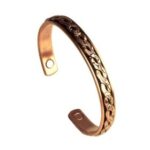 The Mayo Clinic Health Letter makes the connection between static magnets and transcranial magnetic stimulation (TMS).
The Mayo Clinic Health Letter makes the connection between static magnets and transcranial magnetic stimulation (TMS).
You’ll have to subscribe to read the whole article, but it’s interesting that Mayo places both treatments in the same category. Continue reading Making the connection between static magnets and TMS
 Prof. Ernst has reviewed the evidence. Continue reading CAM for neuropathic and neuralgic pain
Prof. Ernst has reviewed the evidence. Continue reading CAM for neuropathic and neuralgic pain
 People tend to buy them when they’re in a lot of pain. Then, when the pain eases over time they attribute the change to the device.
People tend to buy them when they’re in a lot of pain. Then, when the pain eases over time they attribute the change to the device.
But researchers from the University of York, in the UK report they are “generally ineffective for managing pain, stiffness, and physical function in osteoarthritis.” Continue reading Ineffective magnetic bracelets
 Researchers from the Canadian Memorial Chiropractic College in Toronto reviewed the evidence for complementary therapies. Continue reading CAM for myofascial trigger points and pain syndrome
Researchers from the Canadian Memorial Chiropractic College in Toronto reviewed the evidence for complementary therapies. Continue reading CAM for myofascial trigger points and pain syndrome
![]() The National Center for CAM (NCCAM) has summarized the state of the science. Continue reading The NCCAM view of CAM for fibromyalgia
The National Center for CAM (NCCAM) has summarized the state of the science. Continue reading The NCCAM view of CAM for fibromyalgia
 One exception might be osteoarthritis. Continue reading Evidence does not support static magnets for pain relief
One exception might be osteoarthritis. Continue reading Evidence does not support static magnets for pain relief
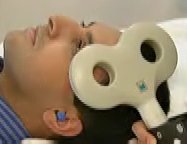 Transcranial magnetic stimulation (TMS) was effective and safe in this study from the University of Pennsylvania in Philadelphia. Continue reading Magnets to treat major depression
Transcranial magnetic stimulation (TMS) was effective and safe in this study from the University of Pennsylvania in Philadelphia. Continue reading Magnets to treat major depression
 It might be an option for people with major depression who have not responded to conventional antidepressant medications. Continue reading Transcranial magnetic stimulation for acute treatment of major depression
It might be an option for people with major depression who have not responded to conventional antidepressant medications. Continue reading Transcranial magnetic stimulation for acute treatment of major depression
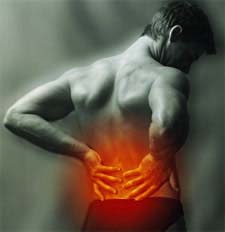 My thought about this study is that considering the academic and research “pedigree” of the authors (ie, National Institute of Mental Health, National Center for Complementary and Alternative Medicine [NCCAM], National Institute for Dental and Craniofacial Research, and Columbia University), why did they settle for such a rudimentary study design?
My thought about this study is that considering the academic and research “pedigree” of the authors (ie, National Institute of Mental Health, National Center for Complementary and Alternative Medicine [NCCAM], National Institute for Dental and Craniofacial Research, and Columbia University), why did they settle for such a rudimentary study design?
When you get to the end of this post, consider if this study advanced the state of our knowledge on this topic. Continue reading Magnets for lower back pain?
 And how they compare to the fentanyl (Duragesic) patch. Continue reading Comparing CAM options to treat osteoarthritis knee pain
And how they compare to the fentanyl (Duragesic) patch. Continue reading Comparing CAM options to treat osteoarthritis knee pain
![]() Overall, they are positive, at least at the University of Minnesota. Continue reading Attitudes of pharmacy faculty and students toward CAM
Overall, they are positive, at least at the University of Minnesota. Continue reading Attitudes of pharmacy faculty and students toward CAM
 I was surprised to learn of the popularity of homeopathy among today’s luminaries.
I was surprised to learn of the popularity of homeopathy among today’s luminaries.
Here’s a list.
 The Centers for Disease Control has just published the latest data on the prevalence of diabetes in the US.
The Centers for Disease Control has just published the latest data on the prevalence of diabetes in the US.
Is it any wonder that so many CAM therapies are studied in people with diabetes?
A quick listing of CAM entries for diabetes on this blog is provided below. Or, click the button on the right sidebar to see all of the diabetes entries.
 I love the studies on repetitive transcranial magnetic stimulation (rTMS). It’s magnet therapy for the 21st century — sort of.
I love the studies on repetitive transcranial magnetic stimulation (rTMS). It’s magnet therapy for the 21st century — sort of.
Here’s why the results of this latest study are important.
Continue reading Magnetic stimulation lowers use of pain meds following gastric bypass surgery